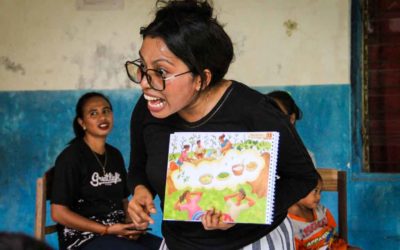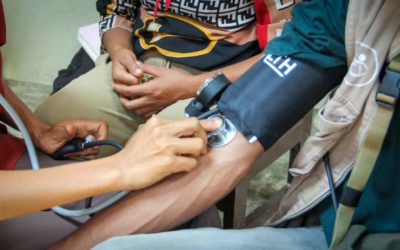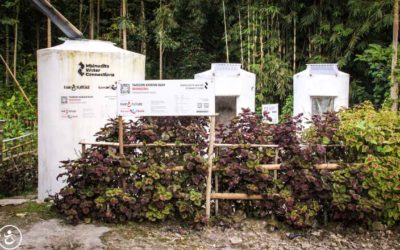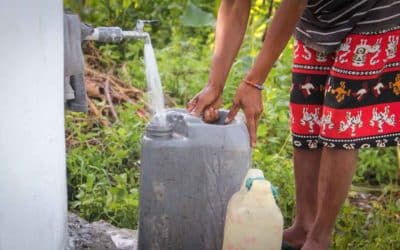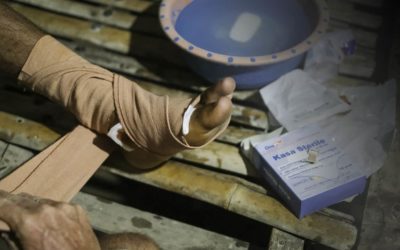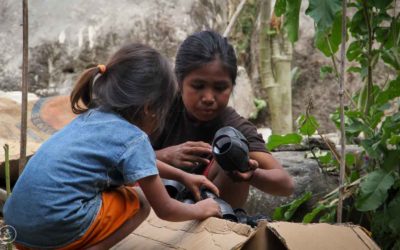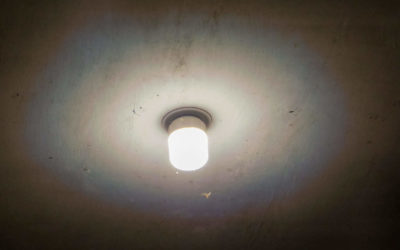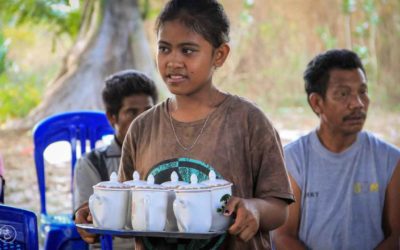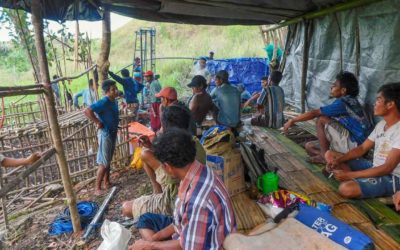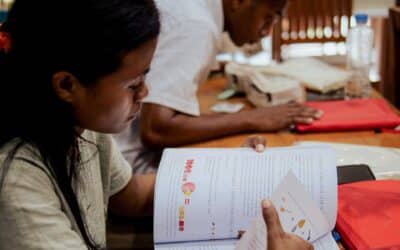The Primary Medical Care (PMC) program has made a remarkable difference in the rural communities of East Sumba, providing over a thousand treatments that offer critical medical assistance to those in need. Through their unwavering dedication and hard work, the women of the region have been empowered to take control of the health and welfare of their ultra-rural communities. By providing them with the essential knowledge, resources and tools, we have successfully equipped them to face all the socio-medical challenges that come their way. Over nearly five months, Fair Future and Kawan Baik, our partners, all participants, and teams collaborated to go above and beyond in reaching the most challenging areas and evaluating the impact of the field program. The results are awe-inspiring, leaving no doubt that the Primary Medical Care program is the definitive solution to ensure everyone can access emergency medical assistance.
Illness often begins long before someone arrives at the hospital. Our campaigns on smoking, waste management, alcohol, and sexual health display straightforward messages across schools and village walls in local languages. Through simple posters, talks, and games, we help protect thousands of children.
Donate
Support Care
Programs
All projects
Quick News
Field updates
Stories
Field stories
Fair Future Foundation Communicate with complete transparency
We strive to uphold transparency, communicate clearly, explain thoroughly, assist effectively, and calculate accurately. Your support propels our success. Effective communication is vital in all interactions, irrespective of the person you are communicating with.
The Project Update category of Fair Future Foundation shares progress and achievements from our work in ultra-rural Indonesia. These stories highlight milestones in medical care, clean water access, and community empowerment, providing real-time updates on how we transform lives. Stay connected to see how each project creates sustainable change, brings hope, and improves the daily reality for families in remote areas.
Every relationship is based on trust
Check blood pressure in rural areas
Here in the ultra-rural and poor areas where Fair Future Foundation and Kawan Baik Indonesia work, populations tend to have a higher prevalence of high blood pressure than in urban and wealthier areas. This is mainly due to poor diet, excessive tobacco consumption, and poor hydration. Of course, poverty and limited access to resources will also contribute to higher stress levels, increasing blood pressure. An unhealthy lifestyle increases the risk of cardiovascular disease and other health problems. We teach some “Kawan Sehat” health workers participating in the primary medical care program to measure blood pressure and take the necessary measures.
What do the sanitary facilities we build look like?
This new "Picture of the Day" shows you an example of construction that we carry out in the poorest villages of Indonesia and Asia. Here the families before did not have access to clean water and toilets. Fair Future and Kawan Baik Foundations have been changing this for years, and noticeable changes are being seen.
Access to drinking water and toilets is a fundamental human right. Still, unfortunately, in the regions where we are, nearly 90% of families in ultra-rural areas do not have access to these necessities. Here are some steps that can be taken to provide access to clean water and toilets in the regions that do not have access:
The first step is to identify the areas most needing these facilities. Fair Future and Kawan Baik proceed through research, surveys, and working with our local partners and authorities. Once regions that do not have access to clean water and toilets have been identified, we develop plans to provide these services. This takes into account the specific needs of each community. To do this, we have several ways to provide access to clean water, such as drilling deep wells, installing water filtration systems and collecting rainwater. The method used will depend on the specific needs of the community.
Access to toilets is also essential to reduce the rate of infectious diseases such as Cholera, Dengue, hepatitis A, and Malaria. In this photo, two sanitary facilities have been built using the Ferro-Cement method, with a tank for collecting dirty water and clean water for watering.
Fair Future also considers it essential to educate the community on the importance of hygiene and sanitation practices to prevent the spread of disease. We do this through the #waterconnections and #kawansehat and #primarymedicalcare programs.
One of our missions is also to monitor and maintain these new facilities. This requires the training of local community members who will carry out essential maintenance and repairs.
Water Connections, look at all we’ve done!
Look at what has been done in the last 20 months, it’s simply extraordinary because doing this in this region was a priori impossible, but we did it. We are at the end of the line in the Water Connections project, we have “only” a few things left to build, including a huge 25,000-liter tank. Here is the project map for you, so you can see all that has been done in this ultra-rural region, one of the poorest in Southeast Asia.
Together we can make it
Let’s do it together and hold hands to reach the moon. Ensure that the primary medical care program for children can continue as the needs are enormous here in eastern Indonesia. Malaria is ravaging, expectations are high, and we lack the means to buy medical equipment, medicines and everything they all need to get better…
Report of the water connections project
Fair Future regularly presents reports establishing what we have achieved in all our necessary actions. The document that we offer you here explains what, all together, we have been doing over the past twelve months as part of this colossal project, Water Connections, Mbinudita Site. As a reminder, this project aims to provide access to drinking water and sanitation to more than 2,500 people whose homes are scattered over nearly 10 hectares.
A real financial blow that affects us
Two of our MacBook Pro-type computers, owned by the foundation, broke down in less than three weeks. And the repair costs are exorbitant for us. We had to find quick solutions. There are days when nothing goes, or almost. Of course, it’s part of life. Still, when it directly affects our ability to work and significantly impacts the finances of our medical and social programs, it becomes complicated for a small foundation like ours.
The 2021 annual report and audited accounts
Account and annual report 2021. Once a year, the foundation publishes its statements revised and approved by the foundation board, the Canton of Vaud and the Swiss Confederation. It also publishes an annual report of actions carried out or in progress in the field.
The drilling of the first well in Mbinudita, East Sumba
The procedure for drilling the first well in Mbinudita as part of the Water Connections project. A work of Titan in insane conditions. Three weeks of life on site in the rain, working around the clock to reach a relatively deep water table since clean, clear and healthy water is found at a depth of just over 60m.
Fair Future Stories Direct to You
Subscribe to Fair Future’s newsletter and get real, powerful stories from our fieldwork. No sales, no promises, only authentic insights about actions, dedication, and true human change.
Documentation
Access Fair Future Foundation’s official and legal documentation, such as our ethics charter, financial reports, mission statement and visual materials. This webpage offers complete information on our rules & regulations, transparency principles as well as safeguarding the communities we cater to . Navigate through significant resources that outline how we function efficiently in making a difference.
Annual Activity Reports from the Field
All Fair Future’s annual activity reports from 2008 to today. A transparent record of field programs, medical missions, and vital impact in rural Indonesia.



